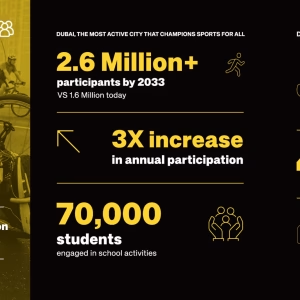In a world increasingly dominated by digital devices, the question of mobile phone usage in UAE schools has become a hot topic of debate. England’s recent move to ban mobile phones in classrooms has caught the attention of educators and parents alike, sparking discussions on the impact of such policies on the learning environment. However, for many schools in the United Arab Emirates (UAE), the concept is far from new. Drawing from these pioneering policies, this article delves into the UAE’s approach to mobile phone use in educational settings, exploring its benefits and challenges.
Background: A Proactive Approach
For years, UAE schools have been ahead of the curve in implementing strict regulations on mobile phone use during school hours. Recognizing the potential distractions and negative impacts on student concentration and social interactions, educational institutions across the Emirates have adopted a variety of strategies to limit mobile device usage. These range from complete bans within school premises to allowing phones only for educational purposes under strict supervision.
Policy Implementation: Varied and Effective
The implementation of these policies varies from school to school. Some institutions require students to deposit their phones at the beginning of the day, collecting them only as they leave. Others have designated areas where mobile use is permitted, ensuring that academic zones remain free from digital disruptions. The overarching goal is to foster a learning environment that encourages face-to-face interaction, deep concentration, and active participation in classroom activities.

Parental Support and Challenges
The move to restrict mobile phone usage in schools has garnered significant support from parents, who have observed positive changes in their children’s behavior and academic performance. Many report a decrease in screen time and an increase in engagement with physical and extracurricular activities. However, the transition has not been without its challenges. Ensuring compliance and managing exceptions, such as for health reasons or emergency contact needs, requires clear communication and cooperation between schools and families.
Impact on Student Well-being and Academic Performance
Evidence suggests that limiting mobile phone access during school hours has beneficial effects on students’ mental health and academic outcomes. Reduced screen time is linked to improved concentration, higher grades, and better sleep patterns. Furthermore, schools have noted a decrease in cyberbullying incidents and distractions, creating a safer and more inclusive environment for all students.

Looking Forward: A Model for Others to Follow
The UAE’s approach to managing mobile phone use in schools offers valuable insights for other countries grappling with similar issues. As England embarks on its journey to implement a nationwide ban, it can look to the Emirates for lessons on effective policy formulation, implementation, and the cultivation of a supportive school community.
Conclusion: Setting the Stage for Success
In conclusion, the UAE’s proactive stance on mobile phone usage in schools serves as a commendable model for creating conducive learning environments in the digital age. By prioritizing student well-being and academic integrity, UAE schools demonstrate that thoughtful policies, coupled with community support, can lead to significant improvements in educational outcomes. As the global debate continues, the experiences of UAE educational institutions provide a blueprint for balancing technology’s benefits with the timeless values of education.
More updates : UAE Stories.














